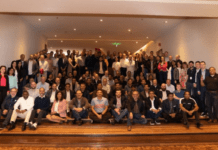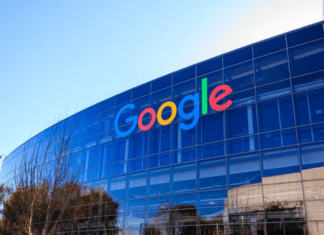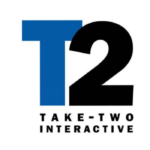As the workforce evolves, organisations must adapt their strategies to attract and retain the upcoming generation of talent — Generation Z. Call them Zoomers or centennials or post-millennials, members of this generation bring unique values, expectations and priorities to the workplace. To effectively engage with them, it is crucial for organisations to understand the red flags that can put them off and hinder their interest in joining or staying with a company.
Lack of purpose & meaning
Being a purpose-driven generation, Gen Z seek meaningful work aligned with their values. Organisations that fail to articulate a clear mission or social impact may deter Gen Z talent. To address this, companies should emphasise their purpose, social responsibility initiatives and opportunities for employees to make a positive difference in society.
“To avoid any red flags, it’s crucial to provide them with a clear understanding of the organisation’s goals and how they align with their purpose. Additionally, as they join the workforce, they are eager to learn and grow. Offering diverse learning opportunities is essential.”
Sujiv Nair, global CHRO, Re Sustainability
Sujiv Nair, global CHRO, Re Sustainability, says Gen Z brings a unique perspective. Most of this demographic cohort is genuinely interested in finding meaningful employment while also valuing flexibility. In terms of ‘purpose’, “they understand our commitment to preservation and some even aspire to make a positive impact on the country”, says Nair.
According to Nair, “To avoid any red flags, it’s crucial to provide them with a clear understanding of the organisation’s goals and how they align with their purpose. Additionally, as they join the workforce, they are eager to learn and grow. Offering diverse learning opportunities is essential.”
Absence of diversity and inclusion
Gen Z is the most diverse generation to date, valuing inclusivity and diversity in all aspects of life, including the workplace. Companies that lack diverse representation or fail to foster an inclusive culture risk alienating members of Gen Z. It is crucial for organisations to prioritise diversity, equity and inclusion efforts, ensuring that all employees feel respected, represented and empowered.
Furthermore, Nair adds that this generation of employees is passionate about corporate social responsibility (CSR), innovation and LGBTQ+ inclusion. Therefore, “what matters most is that we compensate for this by providing opportunities that cater to their needs and aspirations”.
Sharad Sharma, CHRO, Pramerica Life, agrees, “Inclusivity and diversity are vital considerations. Beyond gender representation, inclusivity encompasses a wide range of perspectives, experiences and backgrounds. Companies that promote inclusivity by involving employees in their decision-making processes and valuing diverse voices create a more inclusive and engaging work environment.”
“Flexibility is highly valued by today’s workforce. Organisations that offer flexibility in terms of career growth and work arrangements are more likely to attract and retain top talent,”
Sharad Sharma, CHRO, Pramerica Life
Outdated technology and processes
Having grown up in a digital age, Gen Z expects organisations to embrace technology and provide seamless digital experiences. Outdated systems, inefficient processes and a resistance to adopting new technologies can discourage Gen Z from engaging with an organisation.
Lack of work-life balance and flexibility
Work-life balance and flexibility are paramount for Gen Z, as they value personal well-being and flexibility in managing their careers. Organisations that promote an ‘always-on’ culture or discourage work-life balance may struggle to attract or retain Gen Z employees. Offering flexible work arrangements, remote work options and fostering a supportive work-life balance culture can greatly appeal to this generation and draw them.
Sharma believes that building an organisation that appeals to the next generation requires careful consideration of various factors. “Flexibility is highly valued by today’s workforce. Organisations that offer flexibility in terms of career growth and work arrangements are more likely to attract and retain top talent,” shares Sharma.
Lack of authenticity and transparency
Gen Z values authentic and transparent employers. Companies that engage in deceptive practices, lack transparency in their communication, or fail to live up to their promises can quickly lose trust and credibility with this generation.
Nair observes, “Work engagement and a culture of celebration are also essential. Integrating personal hobbies into the work environment adds to the desired flexibility. By fulfilling these needs and creating a supportive workplace culture, we can cultivate a motivated and engaged workforce.”
“To create a conducive work environment, it’s crucial to adapt and adjust policies as needed. What may have worked a few years ago may not be suitable today, especially with the rise of remote work.”
Mukul Chopra, CHRO, Convegenius
Mukul Chopra, CHRO, Convegenius, believes it’s important for organisations to be mindful of potential red flags that may negatively impact their workplace.
“To create a conducive work environment, it’s crucial to adapt and adjust policies as needed. What may have worked a few years ago may not be suitable today, especially with the rise of remote work. Therefore, staying flexible and open to change is essential, especially with GenZ entering the workforce. Additionally, instead of using negative language such as ‘mental health issues,’ it’s more positive to focus on emotional well-being and foster a supportive culture,” says Chopra.
With the entry of Gen Z into the workforce, organisations must adapt their practices to align with the values and expectations of this unique generation. By recognising and addressing the red flags that turn them off, companies can position themselves as attractive employers and build a diverse, engaged and forward-thinking workforce.
Emphasising purpose, embracing diversity and inclusion, leveraging technology, promoting work-life balance, investing in growth opportunities, and cultivating authenticity and transparency are the key steps towards building an organisation that resonates with and retains Gen Z.
Value our content... contribute towards our growth. Even a small contribution a month would be of great help for us.
Since eight years, we have been serving the industry through daily news and stories. Our content is free for all and we plan to keep it that way.
Support HRKatha. Pay Here (All it takes is a minute)







































